Proxy pricing is complex since there are tens of proxy providers with 5-6 different products per provider. We analyzed top 9 providers’ prices for 3 most common proxies from 10GB to 10TB & identified lowest pricing for different volumes.
See components influencing proxy server prices and compare all major proxy service providers’ prices:
Proxy cost calculator
Select a volume in GB for one or more service types to compare prices across providers:
The cost calculator above displays the prices charged by different proxy providers for specific data packages (e.g., 10 GB, 20 GB, 50 GB) of residential, mobile, and datacenter proxy services.
This next graph compares different proxy providers for main proxy server types based on their cost-efficiency for different bandwidth levels, measured in GB per dollar (GB per $):
Proxy pricing for the best proxy providers
| Proxy providers | Trial period | Pay as you go | Residential | Datacenter | Mobile |
|---|---|---|---|---|---|
| Bright Data | 7 days | ✅ | $3.6 | $0.5 | $7.1 |
| Webshare | 10 DC IPs free | ❌ | $6.0 | $3.0 | ❌ |
| Decodo | 3 days | Residential Mobile | $3.0 | $0.6 | $7.5 |
| Oxylabs | 7 days 5 DC IPs free | Residential Mobile | $3.9 | $2.3 | $8.3 |
| NetNut | 7 days | ❌ | $3.5 | $1.0 | $7.6 |
| Nimble | 7 days | ❌ | $7.5 | ❌ | ❌ |
| IPRoyal | ❌ | Residential | $6.0 | $1.5 | $10.1 |
| SOAX | 3-day trial for $1.99 | ❌ | $3.6 | $0.6 | $3.6 |
The table above displays the proxy service providers that cost below $100 per GB/mo and compares proxies based on a pay-per-GB pricing model.
Proxy providers and their pricing
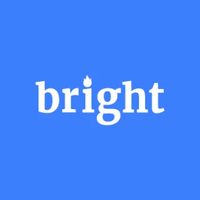
Bright Data
Bright Data‘s proxy costs vary based on:
- Types of proxy servers. Each proxy solution has different pricing structures.
- The level of exclusivity (shared vs. private vs. dedicated). For instance, shared residential ($8.4 per GB) and dedicated residential proxies add an additional $0.5 per IP Group per month.
- Geolocation also affect the pricing. In the image below, there is an additional cost of $15.60 per GB for choosing a specific city targeting.

- The amount of data that is used.
- Whether you opt for a monthly or yearly subscription.
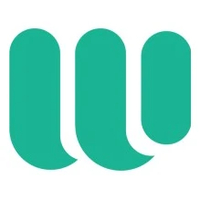
Webshare
Webshare offers 10 free shared datacenter proxies bundled with 1GB of bandwidth. Webshare’s proxy pricing depends on the:
- Types of proxy subnets and IPs. For example, shared proxies are shared with more than 2 users and 1,299 subnets available. Dedicated proxies are fully owned by you and 623 subnets available. Shared proxies are the cheapest while dedicated proxies are the most expensive.
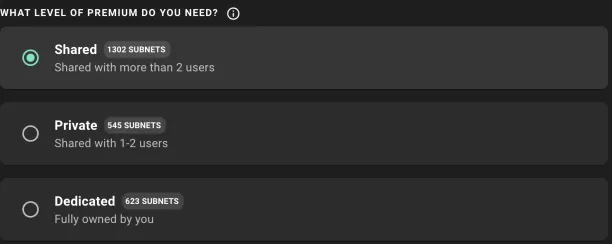
- Number of data you require.
- Types of proxy servers.
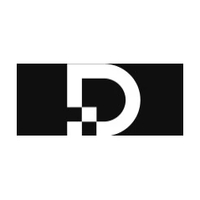
Decodo
Decodo accepts pay as you go payments for residential and mobile proxy solutions with Smart Wallet. For residential IPs, 1GB costs $3.5, while mobile network cost $8.
All plans have limited usage, but you can add more credits (GB) to your current period if you exceed your traffic limit. Decodo provides 100 MB free for three days and a 14-day money-back guarantee for its proxy networks.
Decodo’s proxy pricing depends on the:
- Amount of data and IP addresses used.
- Numerical ordering of the IP addresses. Decodo offers sequential and non-sequential IP addresses for dedicated proxy servers. Sequential IP addresses adhere to a numerical order, whereas non-sequential IP addresses do not consecutively follow each other.
- Number of unique usernames/passwords or whitelisted IPs. Username-password, and IP whitelisting and blacklisting are two types of IP authorization methods that allow users to authenticate users. Some proxy providers may charge based on the number of whitelisted IPs or usernames and passwords.

Oxylabs
Oxylabs‘ pricing model for their dedicated and rotating proxies is subscription-based. The rotating proxies charge just for traffic usage, starting at $.65 per GB. Self-service plans are available for static residential proxies and dedicated datacenter proxies. They offer a pay-as-you-go option for both mobile and residential proxies. Oxylabs provides 5 datacenter IP addresses in the United States and a 7-day free trial for other proxy types.
Oxylabs’ proxy pricing depends on the:
- Amount of data you use.
- IPs included in plan
- Number of users who share an IP address, like dedicated datacenter proxies and shared datacenter proxies.
- Management services they offer, such as dedicated account manager.
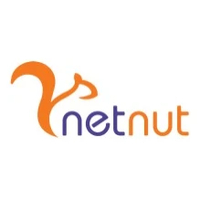
NetNut
NetNut is more toward enterprise-level clients as their plans start from $100. They use a subscription-based pricing model for their proxy solutions. Geolocation does not affect the pricing, all countries are charged at the same rate per GB. The proxy provider supports PayPal and credit card payment method.
NetNut’s proxy pricing depends on the:
- Proxy management services the proxy providers provide such as API access and dedicated account manager.
- Type of IP used.
- Number of data you require.
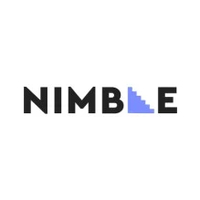
Nimble
Nimble offers four subscription levels, with a pay-as-you-go option starting at $8/GB for rotating residential proxies. The proxy provider does not offer an unlimited proxy plan, there are limitations on the amount of data within the plans.
Nimble’s proxy pricing depends on the:
- The amount of data that is used.
- Whether you opt for a monthly or yearly subscription.

IPRoyal
IPRoyal isamong the most affordable services and uses a subscription-based pricing model. However, they offer a pay-as-you-go based pricing model for their residential proxies. Location doesn’t impact the pricing.
IPRoyal’s proxy pricing depends on the:
- The amount of traffic you purchase for residential proxies. The pricing structure in the image uses a volume discount model for residential proxies.
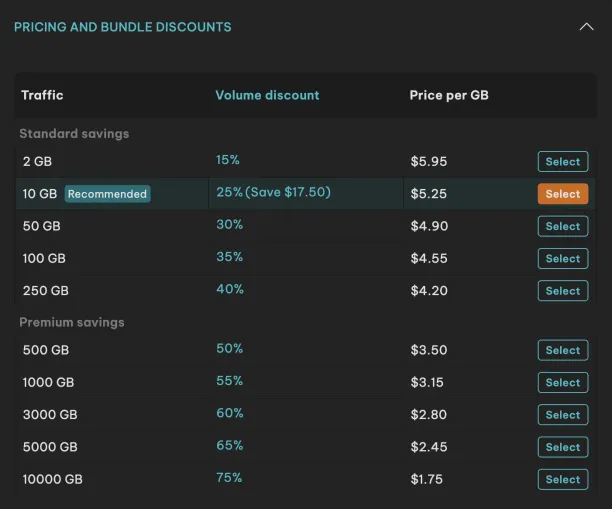
- Number of people who share an IP address.
- the number of proxies and the plan duration for other proxies.

SOAX
SOAX is suitable for the mid-market segment. The targeting and rotation options doesn’t impact the price of proxies.Payment methods currently include credit card, PayPal, cryptocurrencies. SOAX offers monthly plans based on traffic usage, starting from $90 for residential proxy network (25 GB included).
SOAX’s proxy pricing depends on the:
- Number of whitelisted IPs
- Amount of data a client requires
- Number of ports. When you use a proxy, the proxy server forwards your connection request to the target website through the same or a different port.
- Customer support and proxy management services they provide.
Understanding the factors that determine proxy pricing
There are several factors that can affect the cost of a proxy server. These could include:
Proxy quality:
- Proxy type: There are different types of proxies, including residential, datacenter, and mobile proxies. For example, residential proxies use IP addresses that are associated with ISPs (Internet Service Providers), making them appear more legitimate and harder to block. Since they provide higher anonymity and privacy, they are typically more expensive than datacenter proxies.
- Proxy/IP pool size: The number of IP addresses you want to purchase plays a significant role in determining the cost. A higher quantity of IP addresses generally means a higher cost. Some proxy service providers use a bulk discount approach, meaning that the cost per proxy decreases as the quantity of proxies purchased increases.
- Number of users: The price of a proxy can depend on the number of users who access a proxy server or IP address. By the number of users who share an IP address, proxies can be divided into two categories: shared and dedicated (private) proxies. In general, shared proxies are more cost-effective than dedicated proxies because the cost of a shared proxy is split among multiple users. On the other hand, dedicated proxy servers are more costly due to their enhanced performance and privacy.
Traffic:
- Data usage: Some proxy service providers may charge based on the number of requests you make, amount of data you use or bandwidth you consume. For instance, if you intend to collect data at a large scale, you may need to send a higher number of requests to the target web server. You might need to opt for a higher-tier plan, which could result in higher costs. When choosing a proxy provider, it is crucial to understand the pricing structure of the proxy provider and consider your data usage.
- Port usage: Proxy servers forward clients’ connection requests to the target web server using a port. Some proxy providers may limit the number of ports you can use and charge for additional ports.
Additional features:
- Geographic coverage: Proxies located in certain countries may cost more than others due to higher demand. Some proxy providers offer advanced geo-targeting features such as city, ASN, and zip code level targeting, which in turn, can charge more.
- Automatic IP rotation: Most proxy services allow customers to automatically cycle IP addresses over a predetermined period of time or after each request. As part of web scraping best practices, using proxies increases the level of anonymity and reduces the chance of a user’s activities being detected and blocked by the target website. However, this approach may also increase the overall cost of the proxy service.
- Management services: Managements services refer to the additional tools and services that enable users manage and optimize their use of proxy servers, such as API integration, proxy manager, or dashboard tools. Some proxy providers offer API and control panels that enable users to easily manage their proxies, adjust settings, and view proxy usage statistics.
This might increase the pricing of a proxy server due to the additional flexibility they provide. Before choosing a proxy service provider, it is important to consider additional features that your specific application requires and balance these features against your budget.
FAQ
Why is proxy pricing so complex?
Despite their importance in maintaining secure and reliable connections, it is difficult for users to choose a proxy service that fulfills their requirements and fits within their allocated budget.
There are different factors that create a diverse range of pricing models in the proxy server market:
-There are 40+ players in the market.
-Pricing is based on multiple parameters.
-Prices change drastically between different types of proxies (e.g. providing different levels of anonymity) and different providers.
-Proxy effectiveness (e.g. ability to access geo-restricted web content) varies between providers.
By using the price benchmark in this article, you can compare different proxy service providers and make informed decisions when choosing a proxy server solution.
How do proxy buyers use proxies?
Proxy servers act as intermediaries, shielding users’ online identities, ensuring secure connections and facilitating access to geo-restricted content.
External sources
- Oxylabs: Residential Proxies Pricing
- IPRoyal: Residential Proxies Pricing.
- SOAX: Proxies pricing
- NetNut: Rotating Residential Proxies Pricing

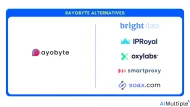
Comments
Your email address will not be published. All fields are required.